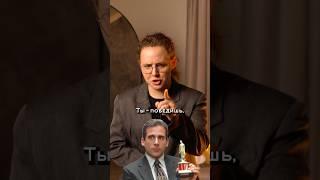
Brad D. Smith, Pres. Marshall University, Former Intuit CEO ($900M Net Worth) Talks w/ Jaylan Mobley
Brad D. Smith's journey from a first-generation college student to becoming the 38th President of Marshall University, following his successful tenure as Intuit's CEO, represents a remarkable story of leadership and transformation. With a net worth of approximately $900 million from his time leading Intuit to a sevenfold market cap increase, Smith has now turned his attention to revolutionizing higher education in his home state of West Virginia.
In a wide-ranging interview, Smith shared his unique approach to leadership, which was shaped by early experiences in his hometown. He recalls his father, then mayor, riding along in garbage trucks to better understand city workers' lives – a lesson in servant leadership that Smith would later apply throughout his career. At Pepsi, his first major corporate role, he became known for riding delivery routes with drivers, demonstrating his belief that true leadership requires understanding the frontline experience.
During his eleven-year tenure as Intuit's CEO, Smith revolutionized the company by implementing comprehensive design thinking principles. His approach was straightforward yet powerful: fall in love with the problem rather than any particular solution, generate multiple potential answers, and run rapid, low-cost experiments to validate ideas. This methodology led to groundbreaking innovations, including mobile tax filing through TurboTax, showing how traditional services could be transformed through technology and user-centered design.
Smith's transition to academia comes at a critical moment in higher education, which he describes as facing three major disruptions – the "3 D's": Demographics (with a projected 15% decline in high school graduates by 2025), Digital (the rise of new learning platforms and AI), and Doubt (the $1.7 trillion student loan crisis affecting 43 million Americans). Rather than viewing these challenges as insurmountable, Smith sees them as opportunities for innovation and transformation.
At Marshall University, Smith has implemented a bold vision centered on six key pillars: cybersecurity, healthcare, advanced manufacturing, new energy, aviation, and entrepreneurship. Through the "Marshall for All Marshall Forever" initiative, he's set an ambitious goal: by 2037, achieve 100% job placement for graduates with zero student debt. The university already demonstrates impressive results, generating a fourteen-fold return on state investment.
Smith's commitment to West Virginia extends beyond the university through his Wing to Wing Foundation, which focuses on education, entrepreneurship, and environmental initiatives. The foundation's name reflects his philosophy that we're all "born angels with one wing" and learn to fly by helping each other – a principle deeply rooted in his experience of witnessing the 1970 Marshall football team plane crash at age six and seeing his community come together in its aftermath.
For those navigating their own careers, Smith offers three fundamental principles: choose work that makes your heart beat faster, surround yourself with more talented people, and ensure financial stability without letting money drive decisions. He emphasizes the importance of maintaining a high "say-do ratio" – following through on commitments – while embracing humility and demonstrating resilience.
Looking toward the future, Smith remains committed to transforming not just Marshall University but the entire narrative around West Virginia and Appalachia. He emphasizes the region's historical contributions, from mining coal and forging steel to contributing to the space program through figures like Katherine Johnson. Under his leadership, Marshall University is becoming a model for modern higher education, proving that innovation and tradition can coexist to create new opportunities for students.
Smith's approach to leadership, combining business acumen with educational vision, offers a unique template for institutional transformation. By emphasizing both the head (strategy and innovation) and the heart (servant leadership and community investment), he demonstrates how traditional institutions can adapt to meet contemporary challenges while staying true to their core mission of serving students and communities.
Throughout the interview, Smith's passion for education and commitment to his home state shines through. His story demonstrates that success in business and dedication to public service aren't mutually exclusive – rather, they can complement each other to create meaningful change. As he leads Marshall University through this period of transformation, Smith's vision offers valuable lessons for leaders in both education and business about the power of combining innovation with service to others.
In a wide-ranging interview, Smith shared his unique approach to leadership, which was shaped by early experiences in his hometown. He recalls his father, then mayor, riding along in garbage trucks to better understand city workers' lives – a lesson in servant leadership that Smith would later apply throughout his career. At Pepsi, his first major corporate role, he became known for riding delivery routes with drivers, demonstrating his belief that true leadership requires understanding the frontline experience.
During his eleven-year tenure as Intuit's CEO, Smith revolutionized the company by implementing comprehensive design thinking principles. His approach was straightforward yet powerful: fall in love with the problem rather than any particular solution, generate multiple potential answers, and run rapid, low-cost experiments to validate ideas. This methodology led to groundbreaking innovations, including mobile tax filing through TurboTax, showing how traditional services could be transformed through technology and user-centered design.
Smith's transition to academia comes at a critical moment in higher education, which he describes as facing three major disruptions – the "3 D's": Demographics (with a projected 15% decline in high school graduates by 2025), Digital (the rise of new learning platforms and AI), and Doubt (the $1.7 trillion student loan crisis affecting 43 million Americans). Rather than viewing these challenges as insurmountable, Smith sees them as opportunities for innovation and transformation.
At Marshall University, Smith has implemented a bold vision centered on six key pillars: cybersecurity, healthcare, advanced manufacturing, new energy, aviation, and entrepreneurship. Through the "Marshall for All Marshall Forever" initiative, he's set an ambitious goal: by 2037, achieve 100% job placement for graduates with zero student debt. The university already demonstrates impressive results, generating a fourteen-fold return on state investment.
Smith's commitment to West Virginia extends beyond the university through his Wing to Wing Foundation, which focuses on education, entrepreneurship, and environmental initiatives. The foundation's name reflects his philosophy that we're all "born angels with one wing" and learn to fly by helping each other – a principle deeply rooted in his experience of witnessing the 1970 Marshall football team plane crash at age six and seeing his community come together in its aftermath.
For those navigating their own careers, Smith offers three fundamental principles: choose work that makes your heart beat faster, surround yourself with more talented people, and ensure financial stability without letting money drive decisions. He emphasizes the importance of maintaining a high "say-do ratio" – following through on commitments – while embracing humility and demonstrating resilience.
Looking toward the future, Smith remains committed to transforming not just Marshall University but the entire narrative around West Virginia and Appalachia. He emphasizes the region's historical contributions, from mining coal and forging steel to contributing to the space program through figures like Katherine Johnson. Under his leadership, Marshall University is becoming a model for modern higher education, proving that innovation and tradition can coexist to create new opportunities for students.
Smith's approach to leadership, combining business acumen with educational vision, offers a unique template for institutional transformation. By emphasizing both the head (strategy and innovation) and the heart (servant leadership and community investment), he demonstrates how traditional institutions can adapt to meet contemporary challenges while staying true to their core mission of serving students and communities.
Throughout the interview, Smith's passion for education and commitment to his home state shines through. His story demonstrates that success in business and dedication to public service aren't mutually exclusive – rather, they can complement each other to create meaningful change. As he leads Marshall University through this period of transformation, Smith's vision offers valuable lessons for leaders in both education and business about the power of combining innovation with service to others.
Комментарии:
Dazed and Confused filming locations
Driveway TV
Sales Tips and Techniques Part 2 | Business | Sales Motivational Speech | Anubhav Srivastava English
Anubhav Srivastava: Business, Sales & Life Tips
Мормышка "гвоздешарик" (Безмотылка)своими руками
Ю-Арт «Ю-Арт»
[紅葉(1)]MTR K66A 港鐵朗屏站️大棠山道
MM4273 Studio
꿀잠가능 끝날때까지 1도 예상할 수 없는, 2024 넷플릭스 신작 범죄스릴러
양쟈까의 La View










![[紅葉(1)]MTR K66A 港鐵朗屏站️大棠山道 [紅葉(1)]MTR K66A 港鐵朗屏站️大棠山道](https://hdtube.cc/img/upload/VWhxQXdON2hYLU4.jpg)















